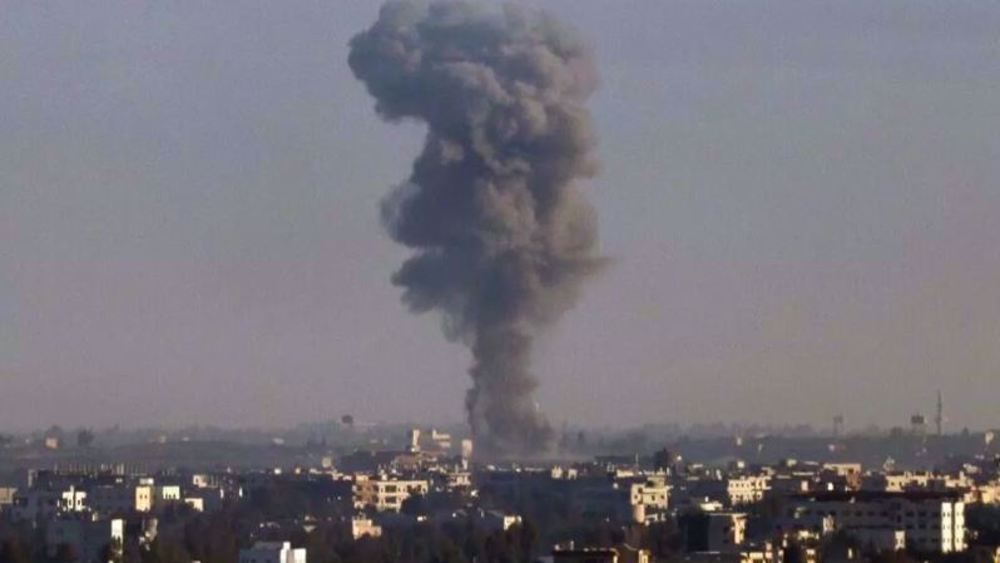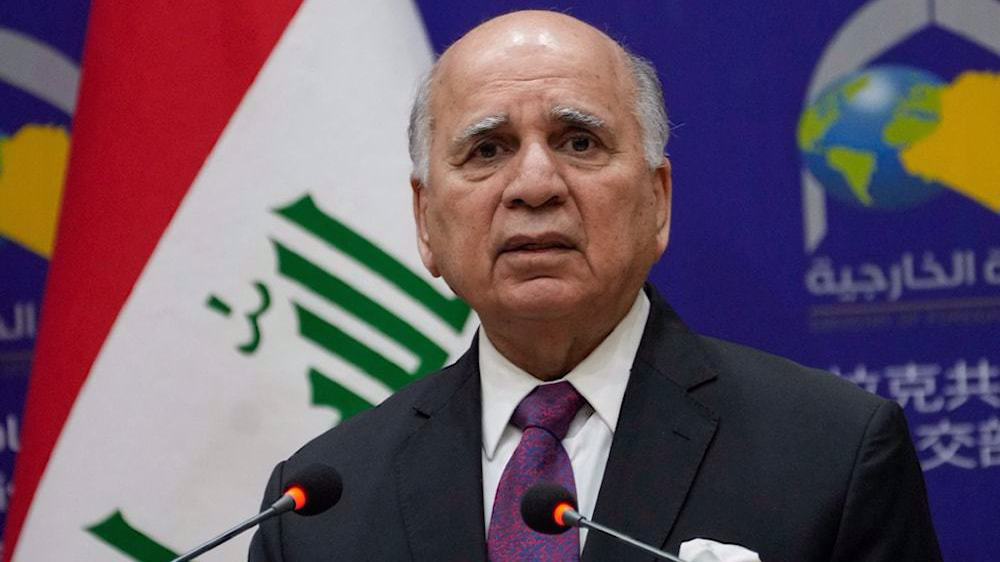Mogherini terms Syria crisis talks 'historic, substantial'
Following the conclusion of the international talks on the Syrian crisis, EU foreign policy chief Federica Mogherini has described the negotiations held in Vienna, Austria, as "historic" and "very substantial."
“We tackled major issues that were on the table… but we found common grounds to continue talks,” Mogherini told reporters on Friday.
She emphasized that the meeting was not an easy one “but for sure a historic one as we had, for the first time, all the actors around the table, and I would say a very constructive atmosphere.”
She said she believed that participants at the international meeting have “some common grounds” on which they can build in the future.
“So there's hope for a political process to start under the UN auspices and with all of us coming together again,” Mogherini pointed out.
'Meeting set for two weeks' time'
Meanwhile, French Foreign Minister Laurent Fabius said that the participants had agreed to hold another meeting in two weeks' time to find a political solution to the four-and-a-half year crisis in Syria.
Speaking to reporters, Fabius said the participants discussed all issues, “even the most difficult" ones.
"There are points of disagreement, but we advanced enough for us to meet again, in the same configuration, in two weeks," the French minister added.
Russia’s hope for further compromises

Russia's Foreign Minister Sergei Lavrov, for his part, expressed hope that further compromises would end the war in Syria.
Speaking in a press conference after the Vienna meeting, Lavrov said the multilateral talks on the Syrian crisis had failed to reach a consensus on the fate of Syria’s President Bashar al-Assad. He emphasized that only "the Syrian people should decide Assad's fate."
Lavrov stressed that terrorists must not be given a chance to seize power in the country.
The Russian foreign minister said any truce in Syria is not going to be applicable to Daesh Takfiris and other terrorists, adding that a comprehensive list of terror groups operating in Syria will be defined during a separate meeting.
No breakthrough: German FM

German Foreign Minister Frank-Walter Steinmeier said that foreign ministers attending the Vienna meeting failed to reach an agreement on the future of Syria and the fate of President Assad.
"There was still no breakthrough, but that also wasn't expected today," he told reporters.
He added that the Syria talks would resume within two weeks, probably in Vienna, and noted that the meeting would focus on establishing a transitional government, new elections and implementing national or regional ceasefires to solve the Syrian conflict.
Remarkable achievement: Britain
British Foreign Minister Philip Hammond assessed the international talks on Syria as "very long, productive and worthwhile."
Hammond added that “very significant differences” remain most obviously around the future of the Syrian president.
“This is the first time we have had all the protagonists around a table together and that's quite a remarkable achievement in itself,” Hammond said.
He noted that officials of the participating countries would continue to work together in a bid to narrow the differences.
“So this is a process now that has some momentum that will go forward and that, in itself, is extremely positive. It has been a very worthwhile day," Hammond pointed out.
'Differences remain'

Meanwhile, participants in the Vienna meeting called for a nationwide truce in Syria.
In a joint statement at the end of the Vienna talks on Friday, the participants said "substantial differences remain" but it was "imperative to accelerate all diplomatic efforts to end the war".
According to the statement, the participants called on the United Nations to bring together representatives of the Syrian government and opposition to launch "a political process leading to credible, inclusive, non-sectarian governance, followed by a new constitution and elections."
The international meeting on the Syrian crisis kicked off in the Austrian capital on Friday. Representatives from Iran, the United States, Turkey, Saudi Arabia, France, Germany, Italy, Egypt, Russia, Jordan, Britain, Qatar, the United Arab Emirates, Iraq, Lebanon, China and Oman attended the talks.
Envoys from the United Nations and the European Union were also present at the meeting.
This was the first time that the Islamic Republic attended the talks after it was denied participation in the previous two rounds - both of which ended inconclusively - under pressure from the US and its allies.
The foreign-backed militancy in Syria, which flared in March 2011, has so far claimed the lives of over 250,000 people and displaced millions.
'Capitulation': Israeli officials and media concede Gaza defeat as truce unfolds
'Gaza has won': Social media users react to ceasefire with mix of relief, joy
Iran seeks South Korea’s assistance for AI, fiber-optic projects
VIDEO | Iran's 'Eqtedar' (Power) maneuver
Israel hits HTS military target in Syria for 1st time since fall of Assad
VIDEO | Press TV's news headlines
Israel has slaughtered 13,000 students in Gaza, West Bank
VIDEO | More Zionist than Zionists: Biden’s legacy to be defined by Gaza genocide









 This makes it easy to access the Press TV website
This makes it easy to access the Press TV website